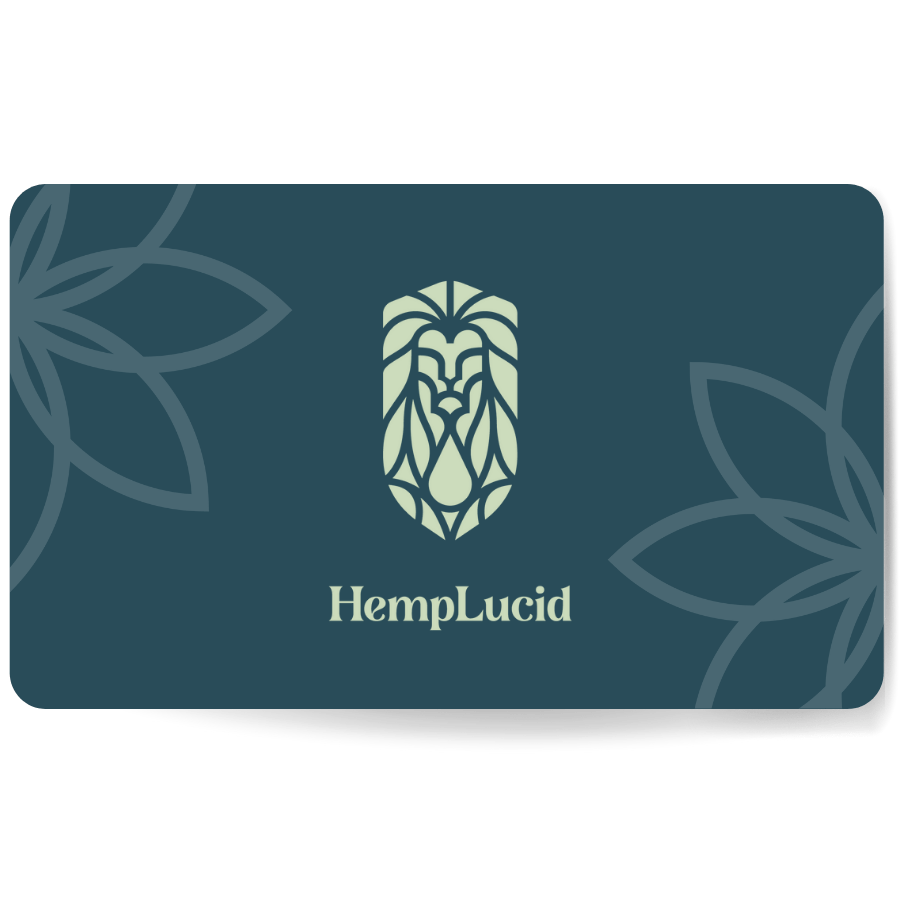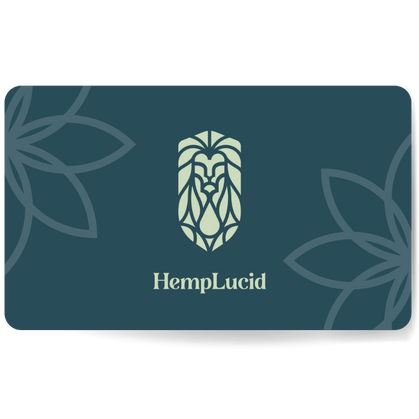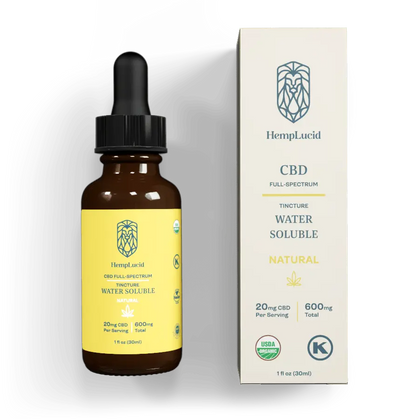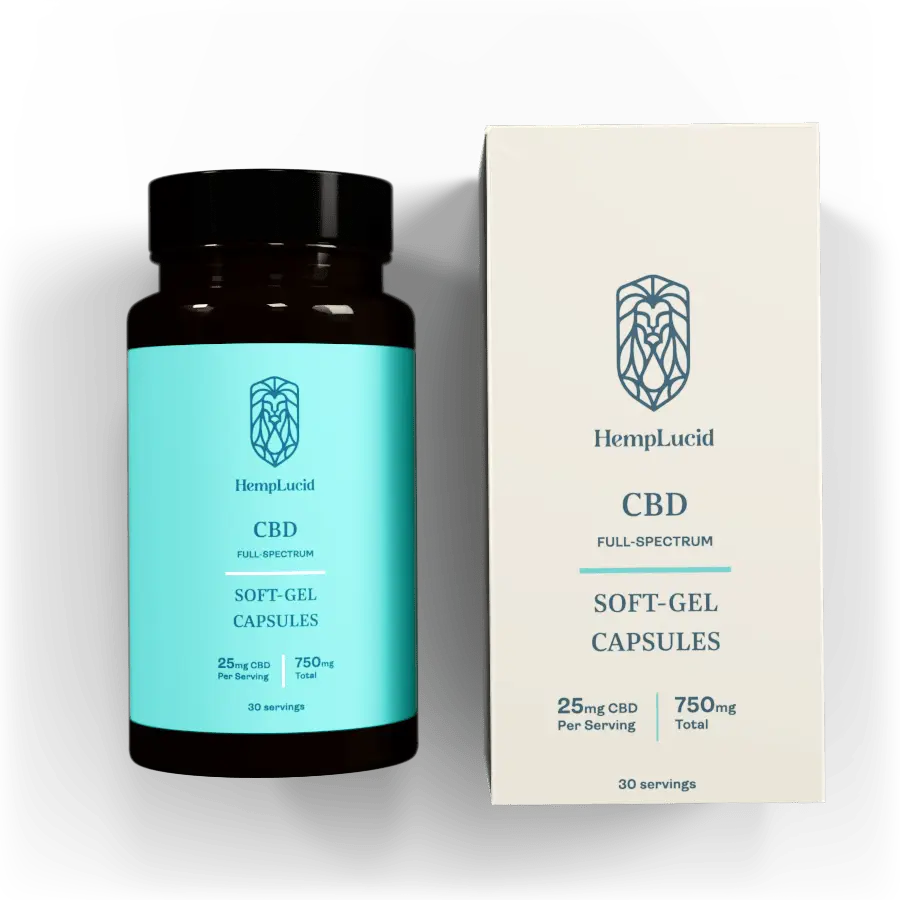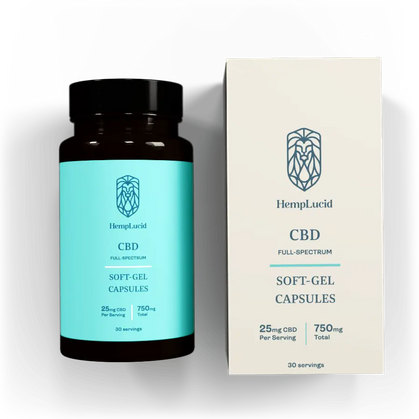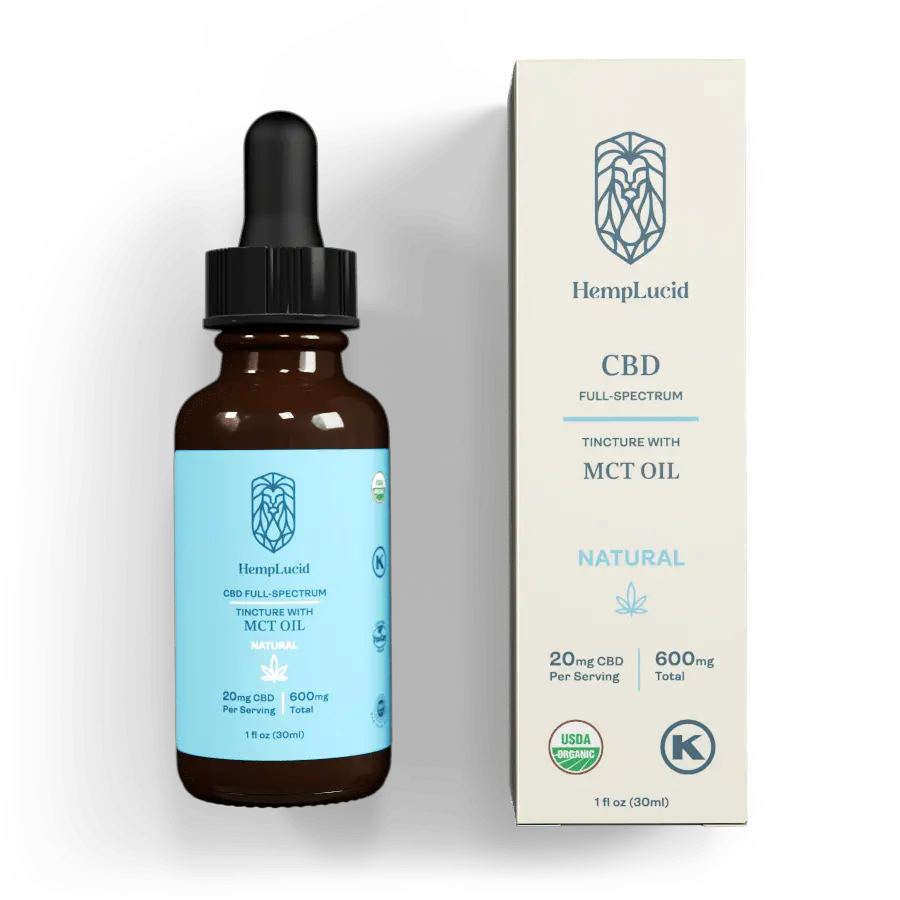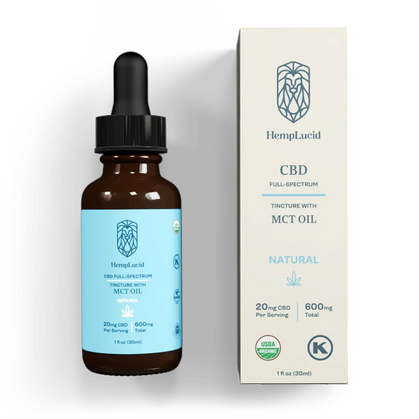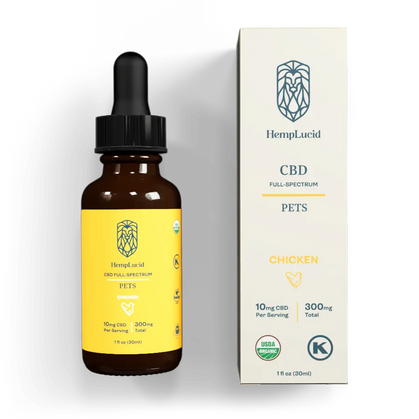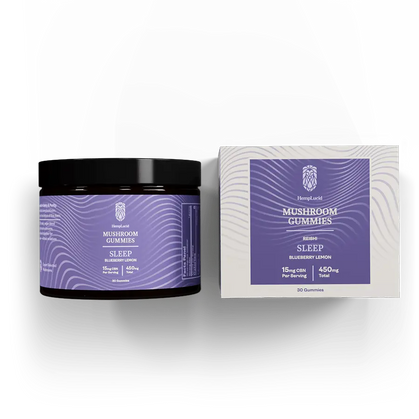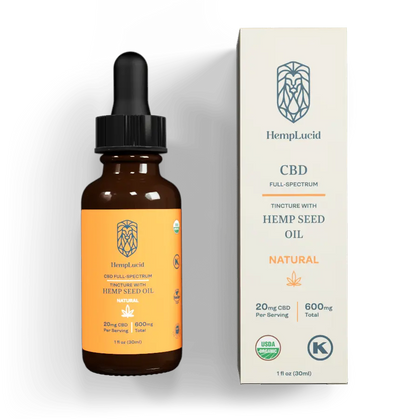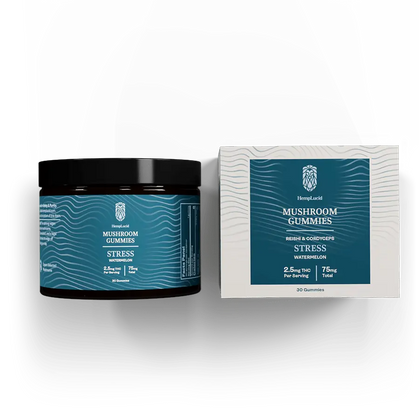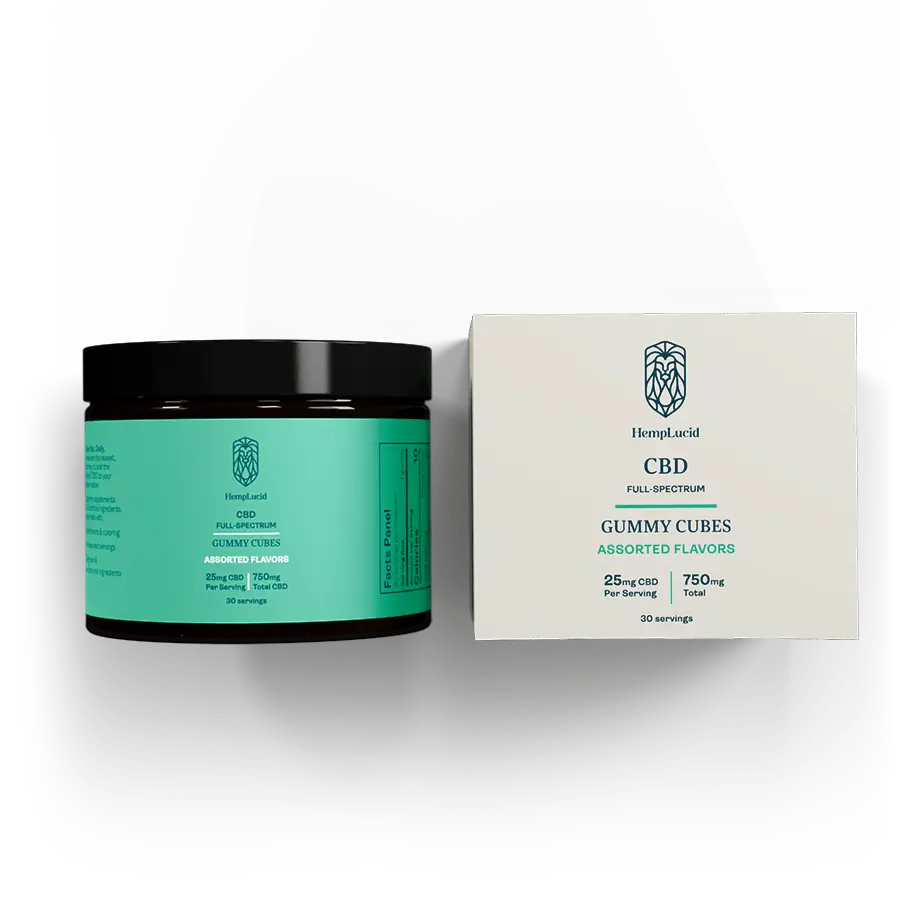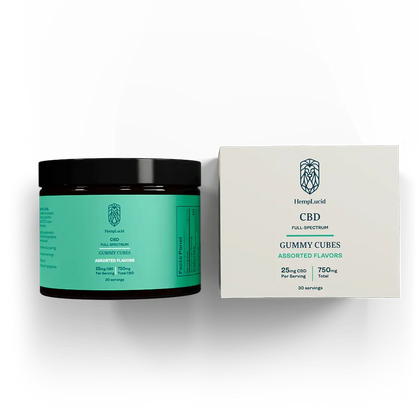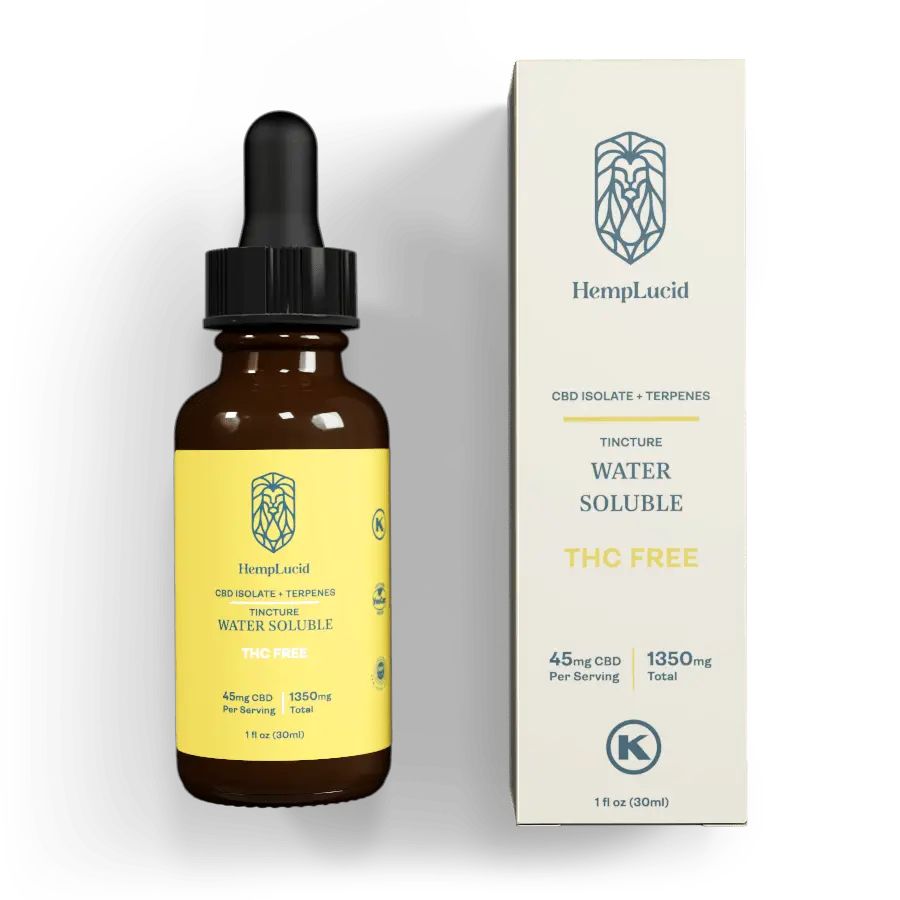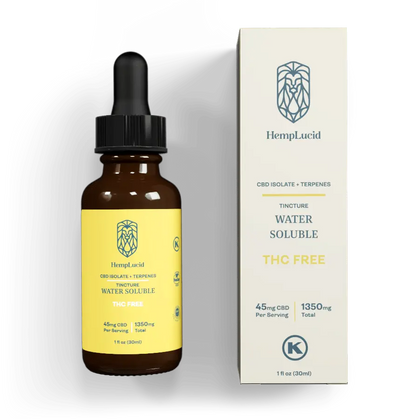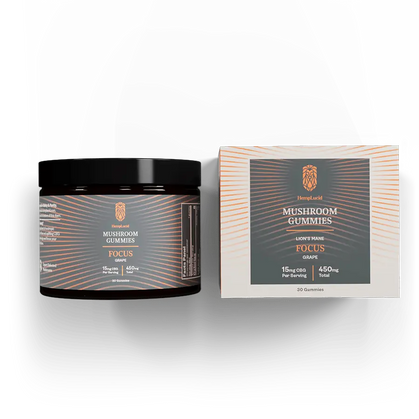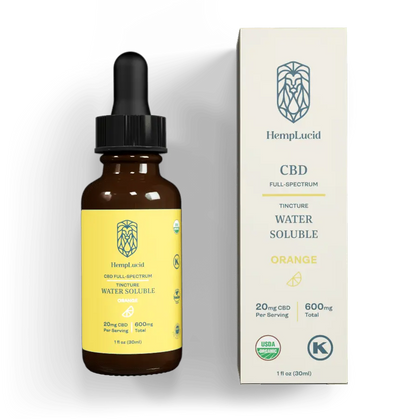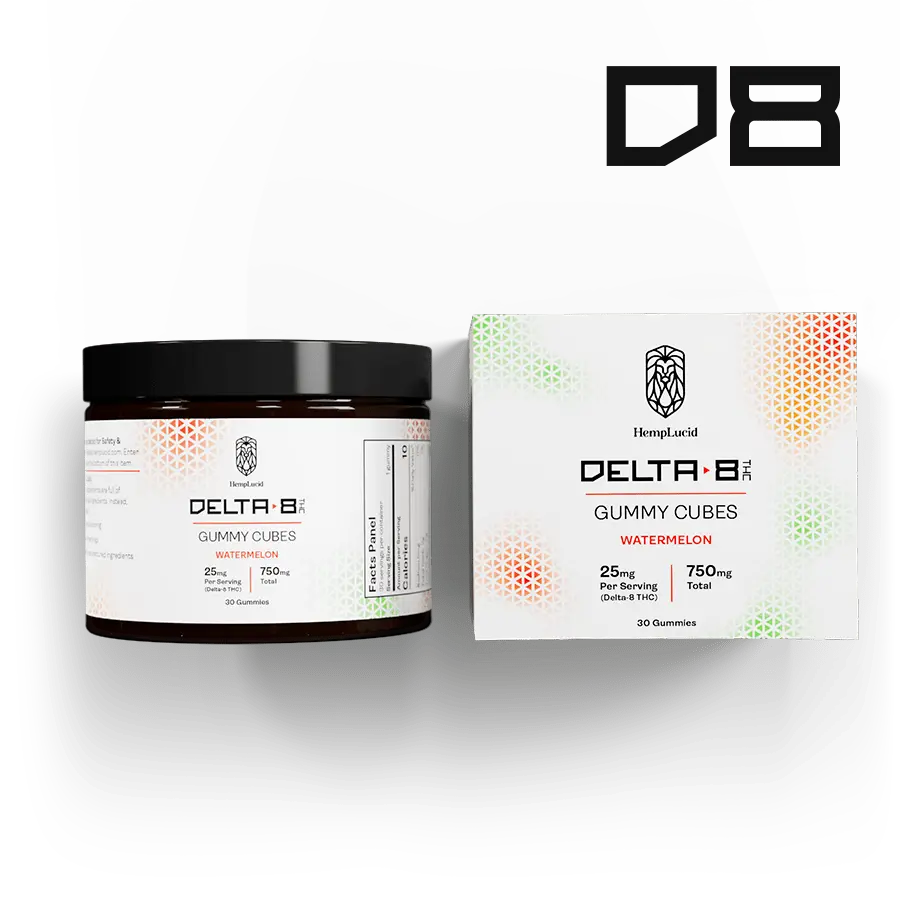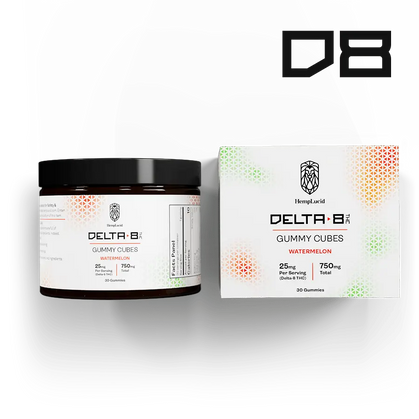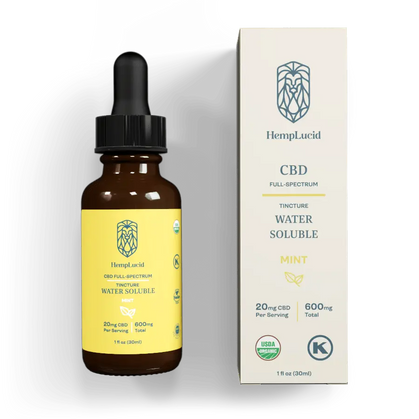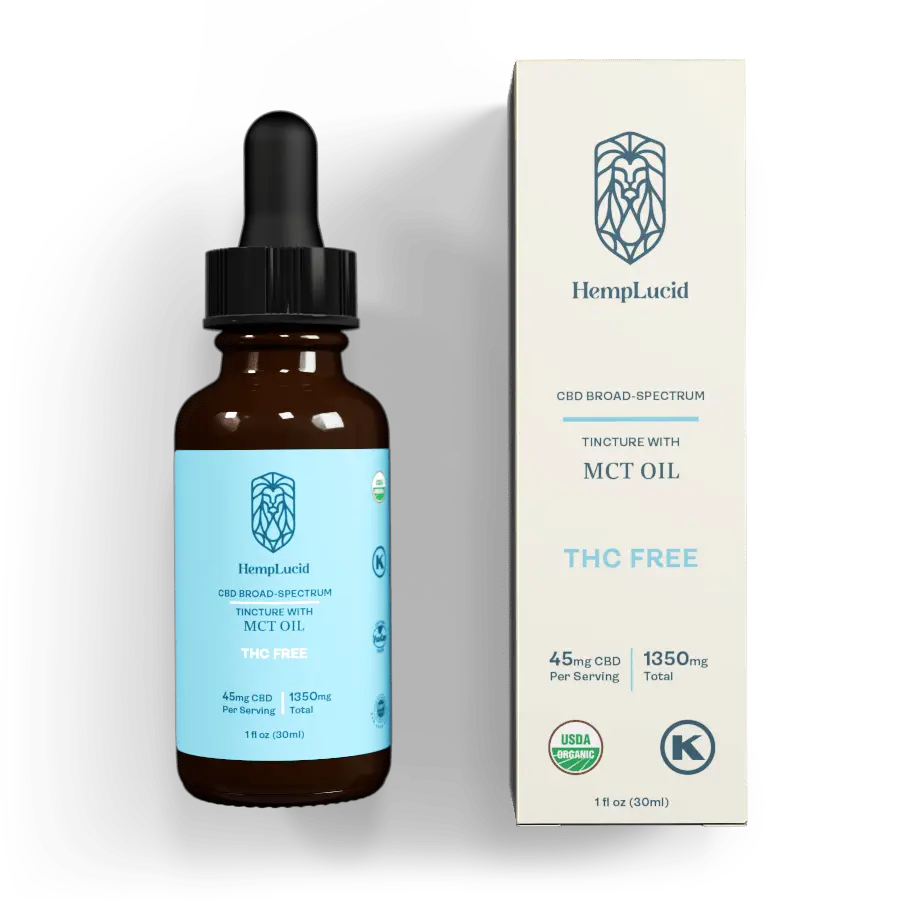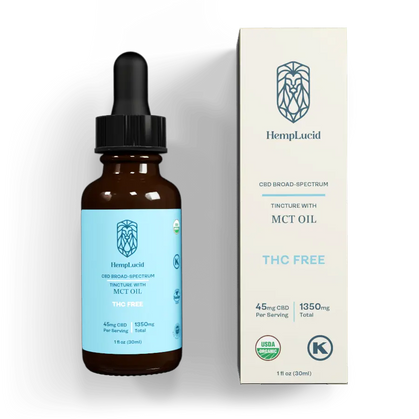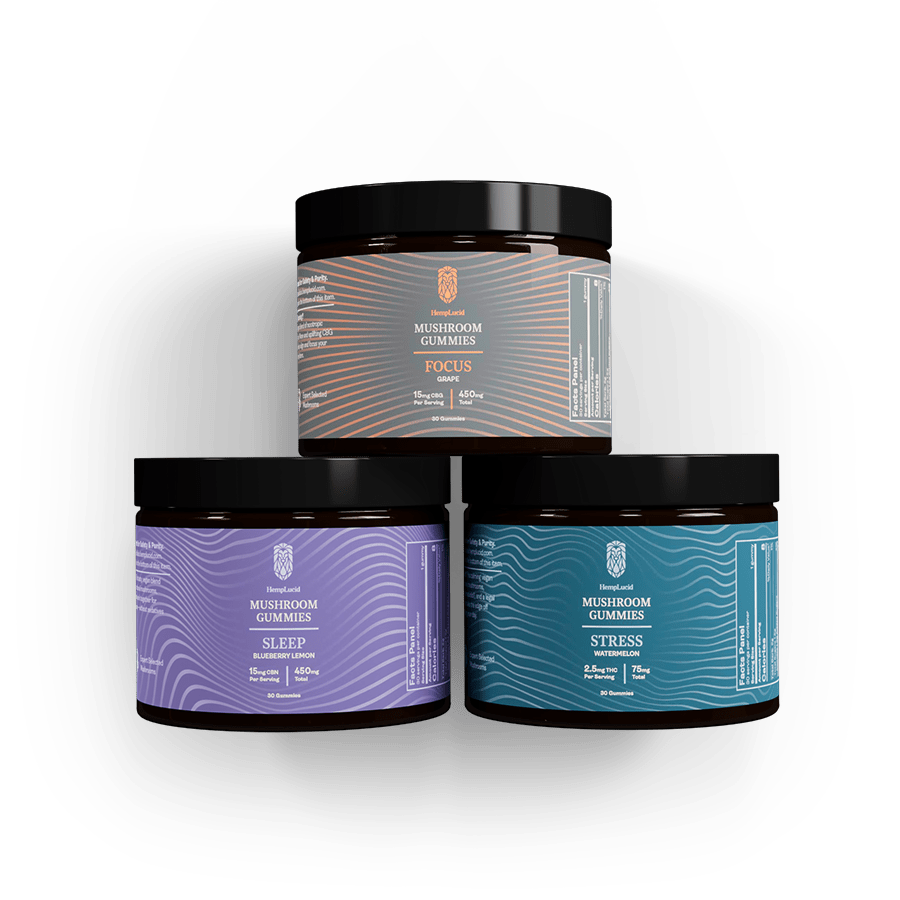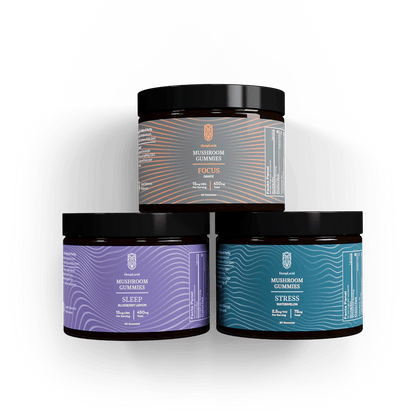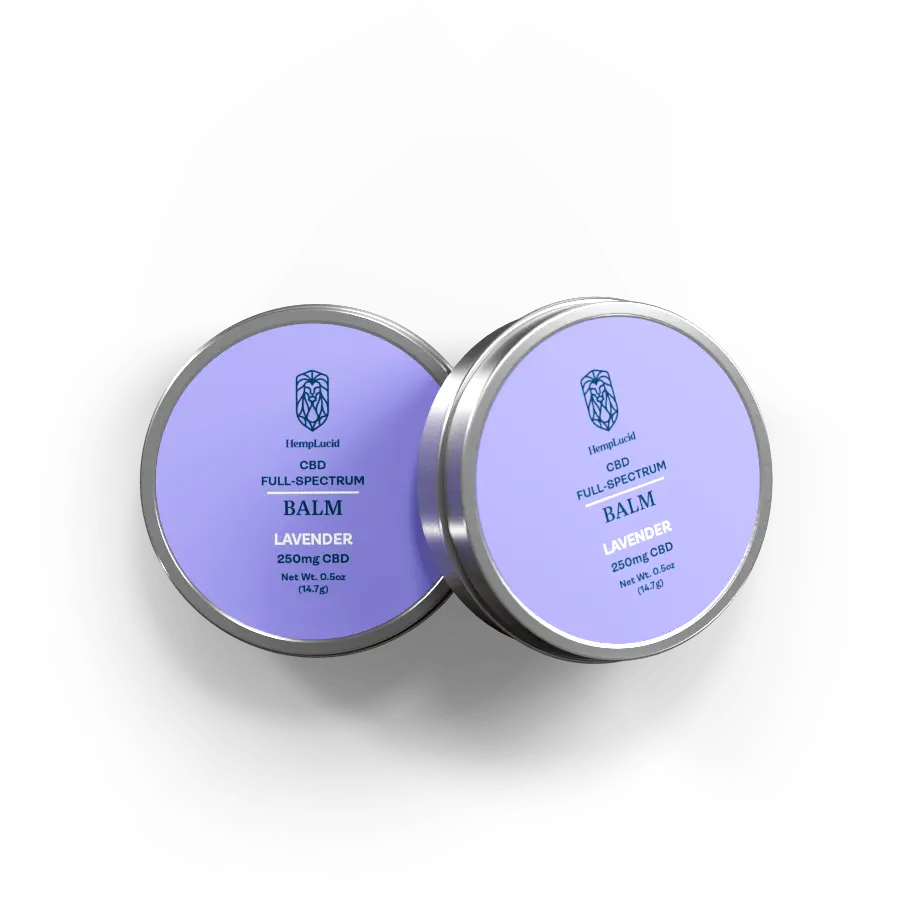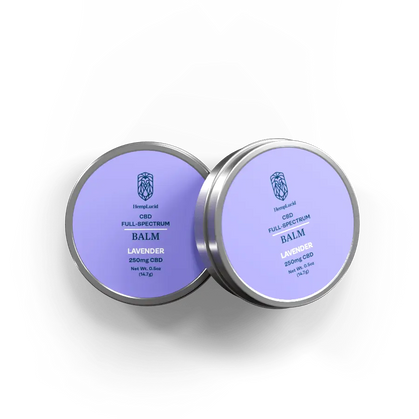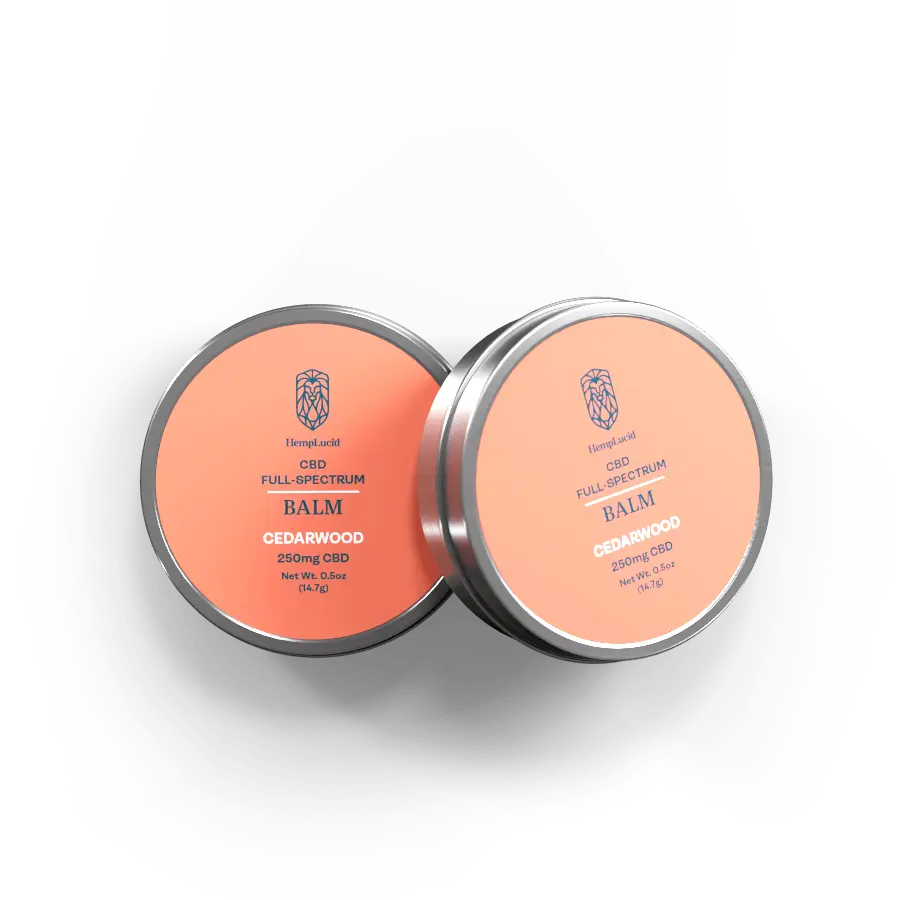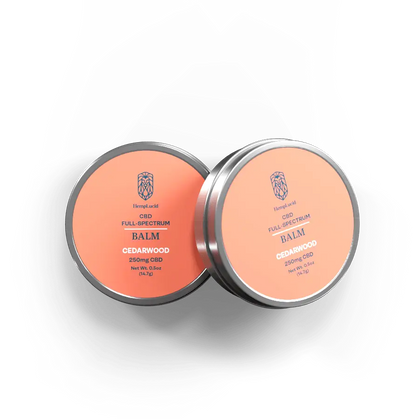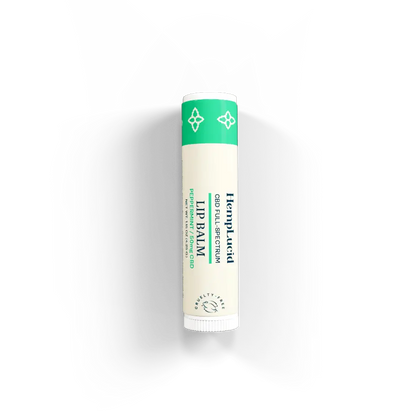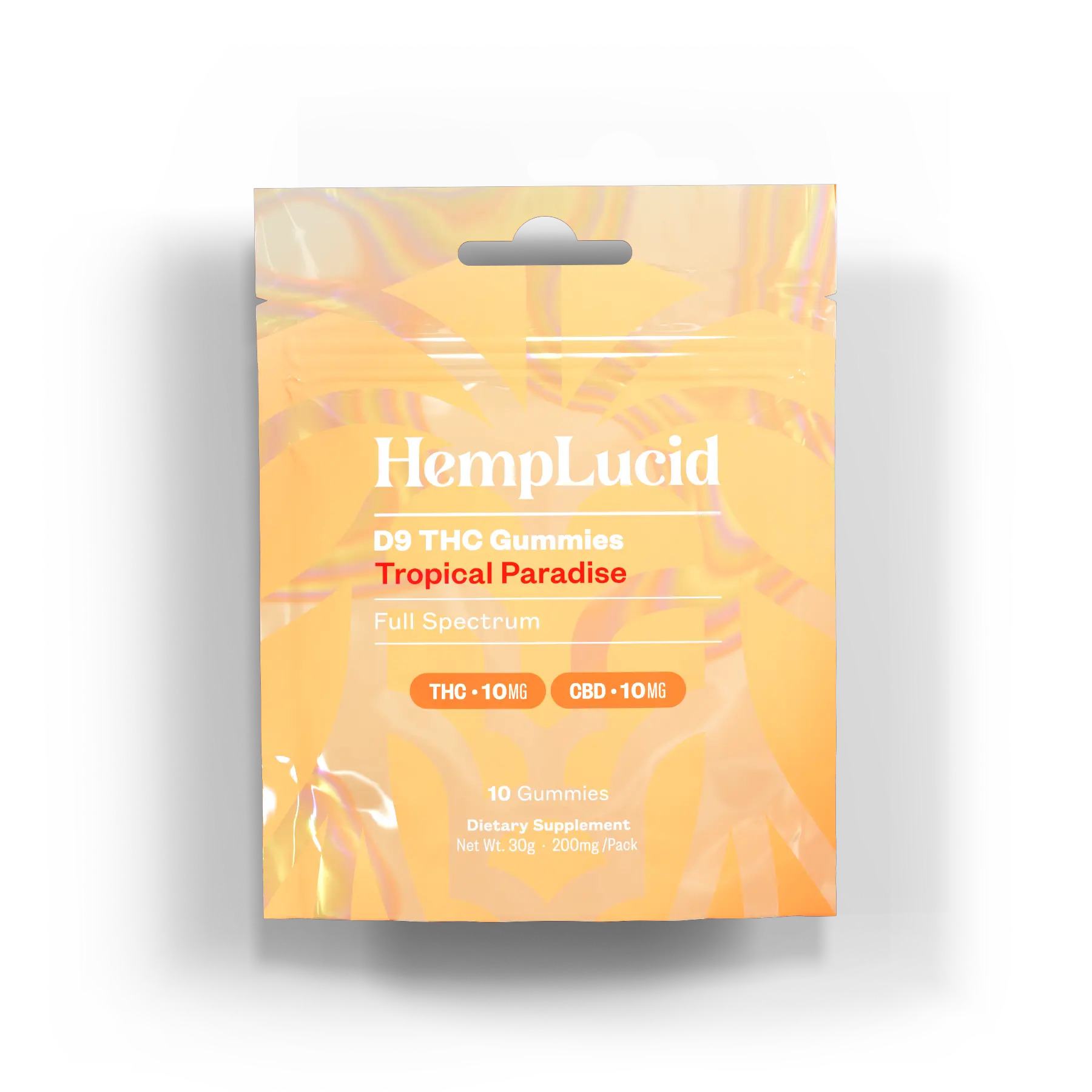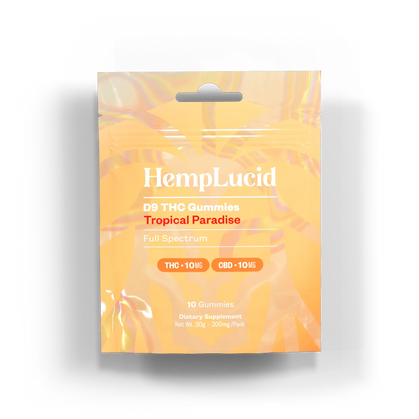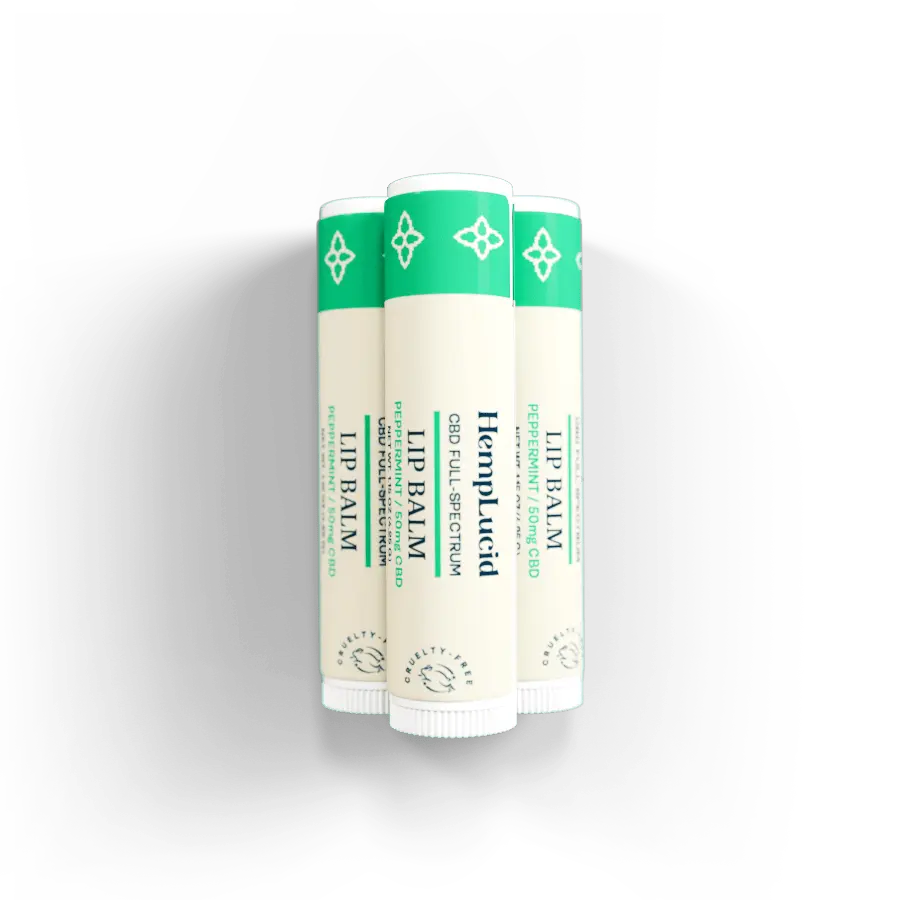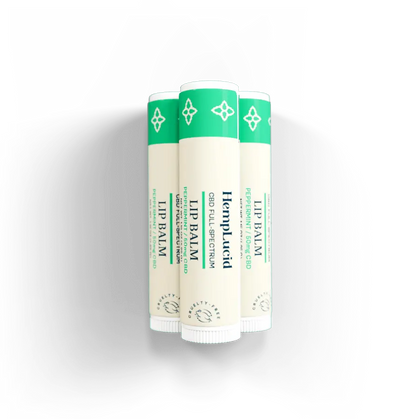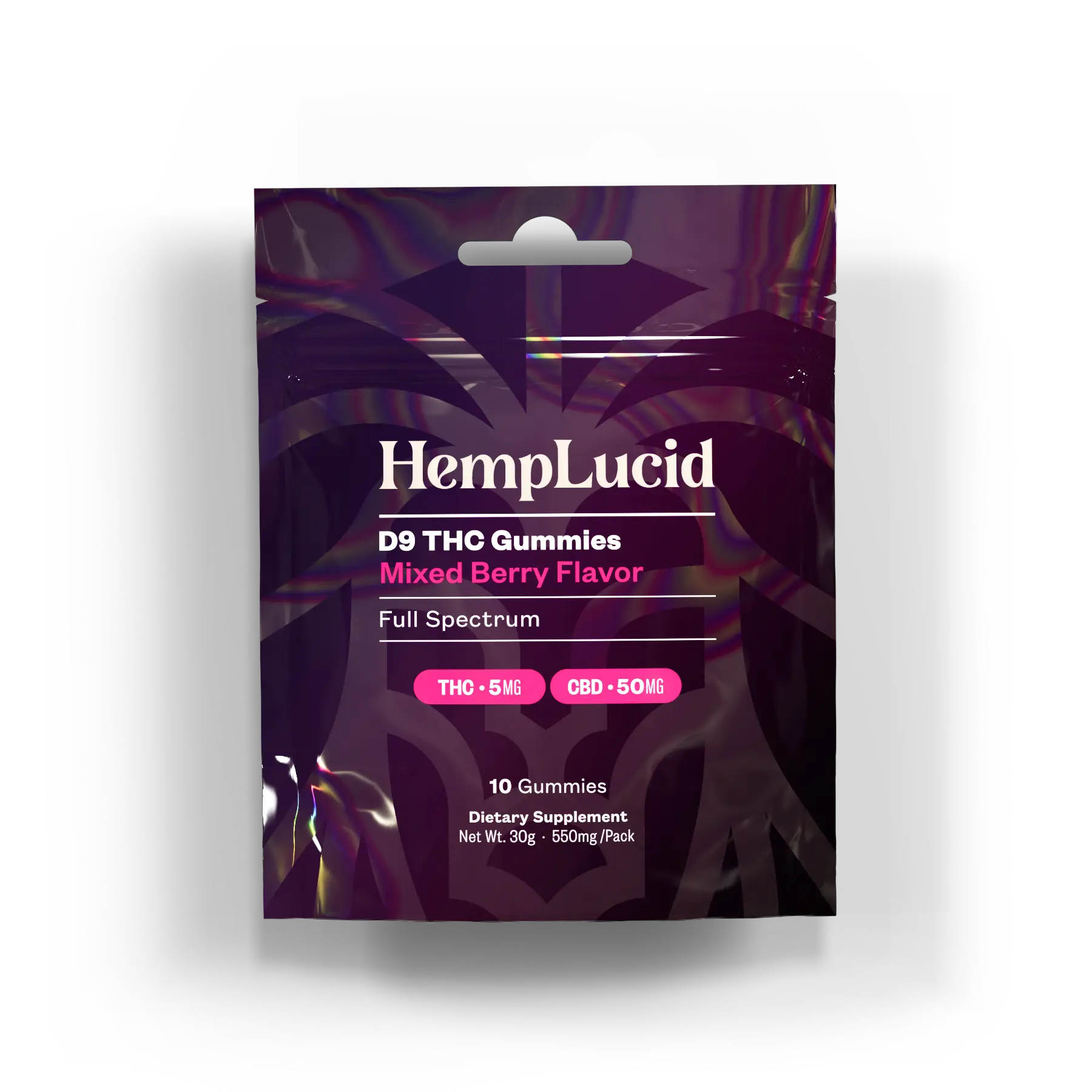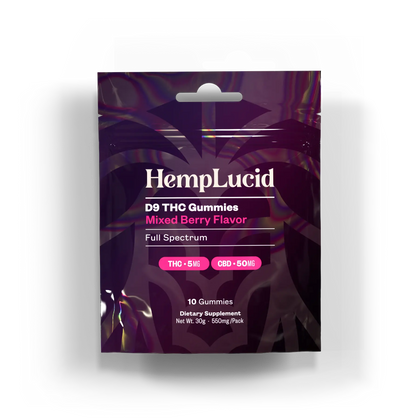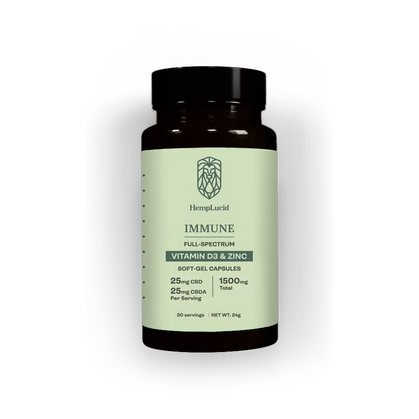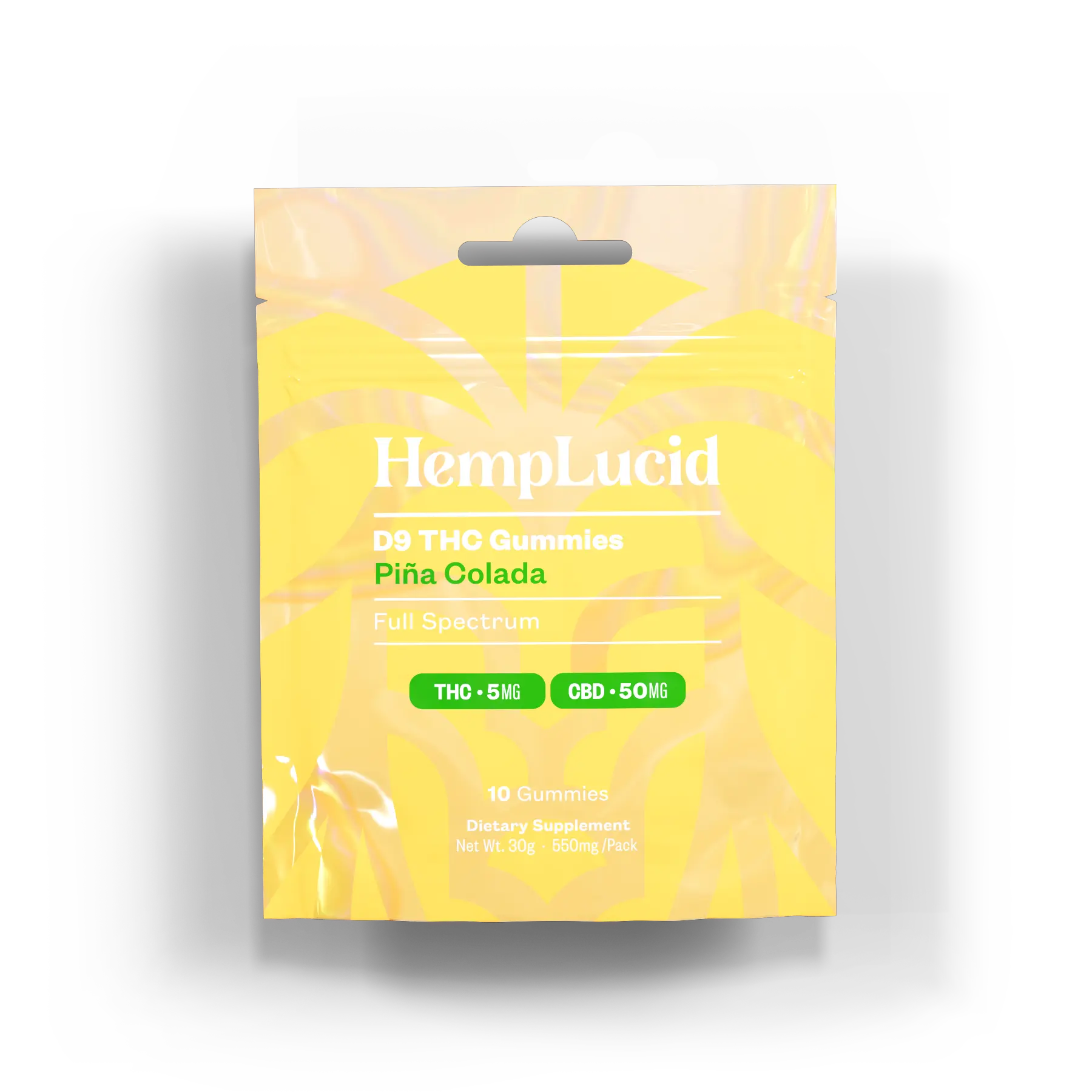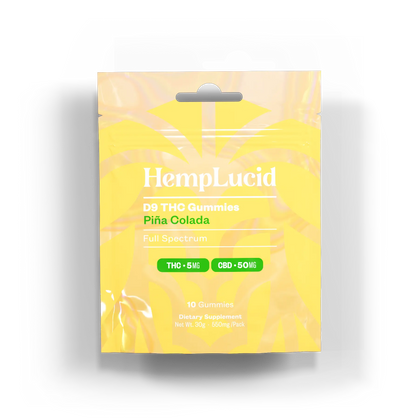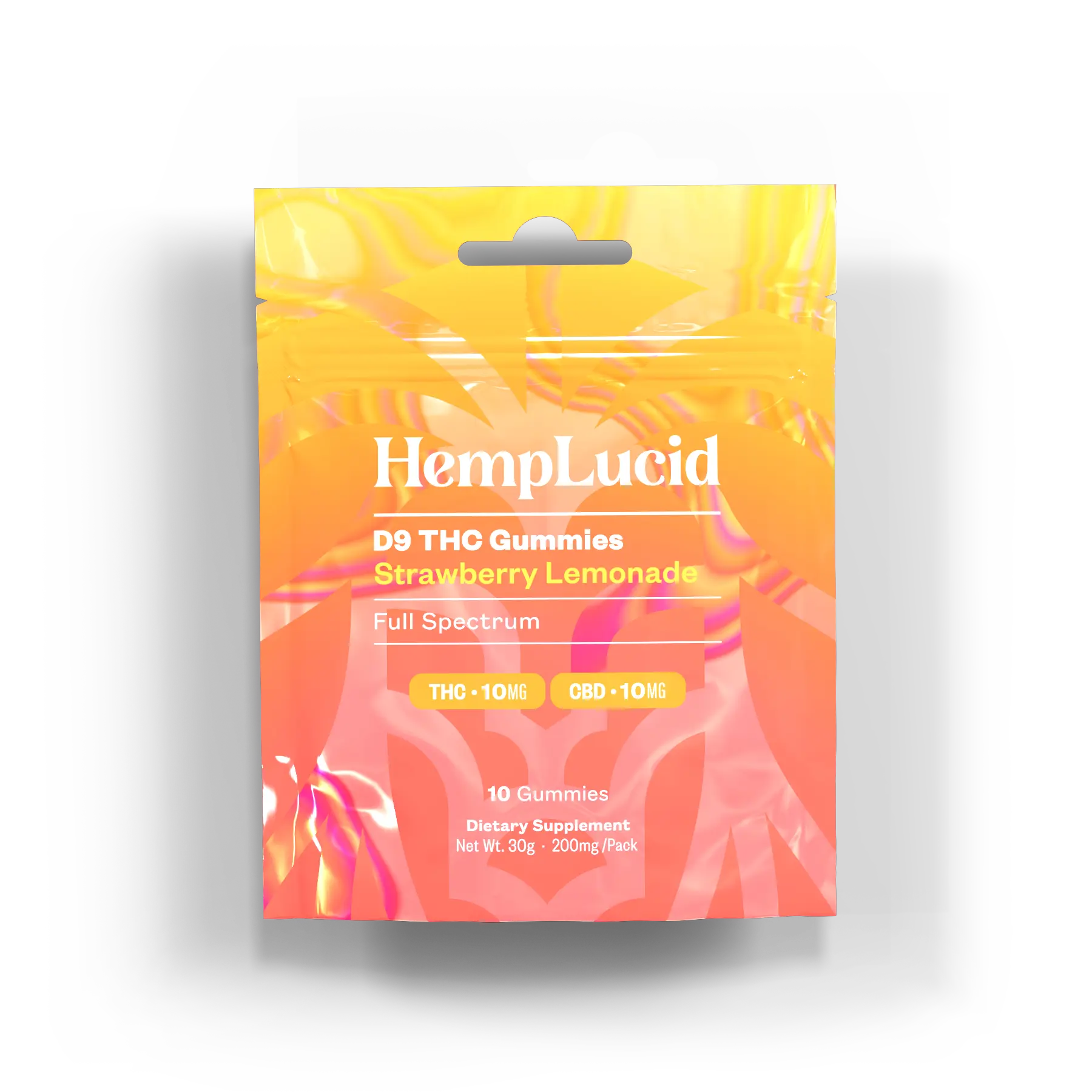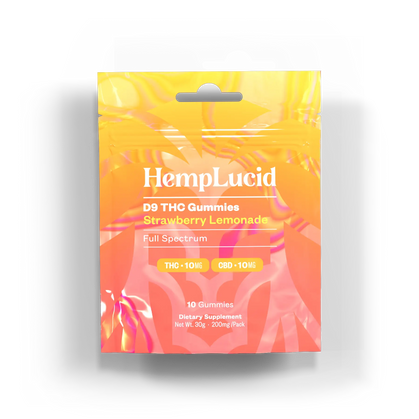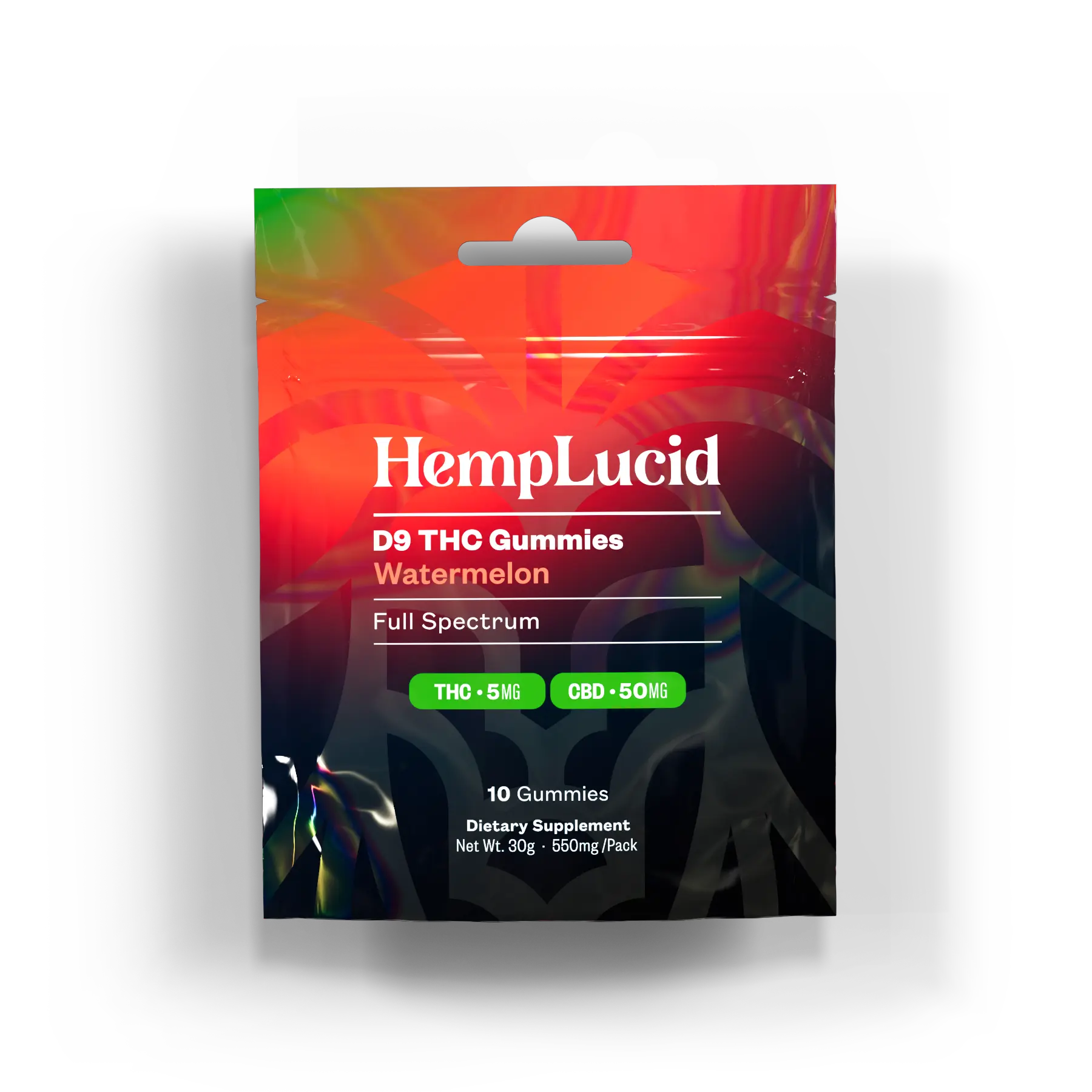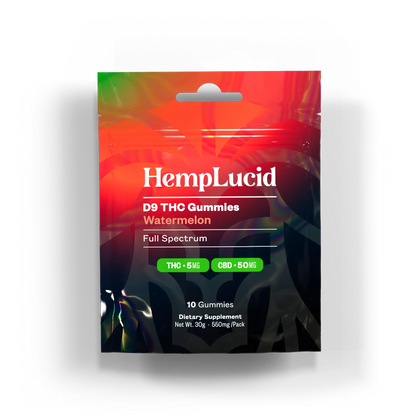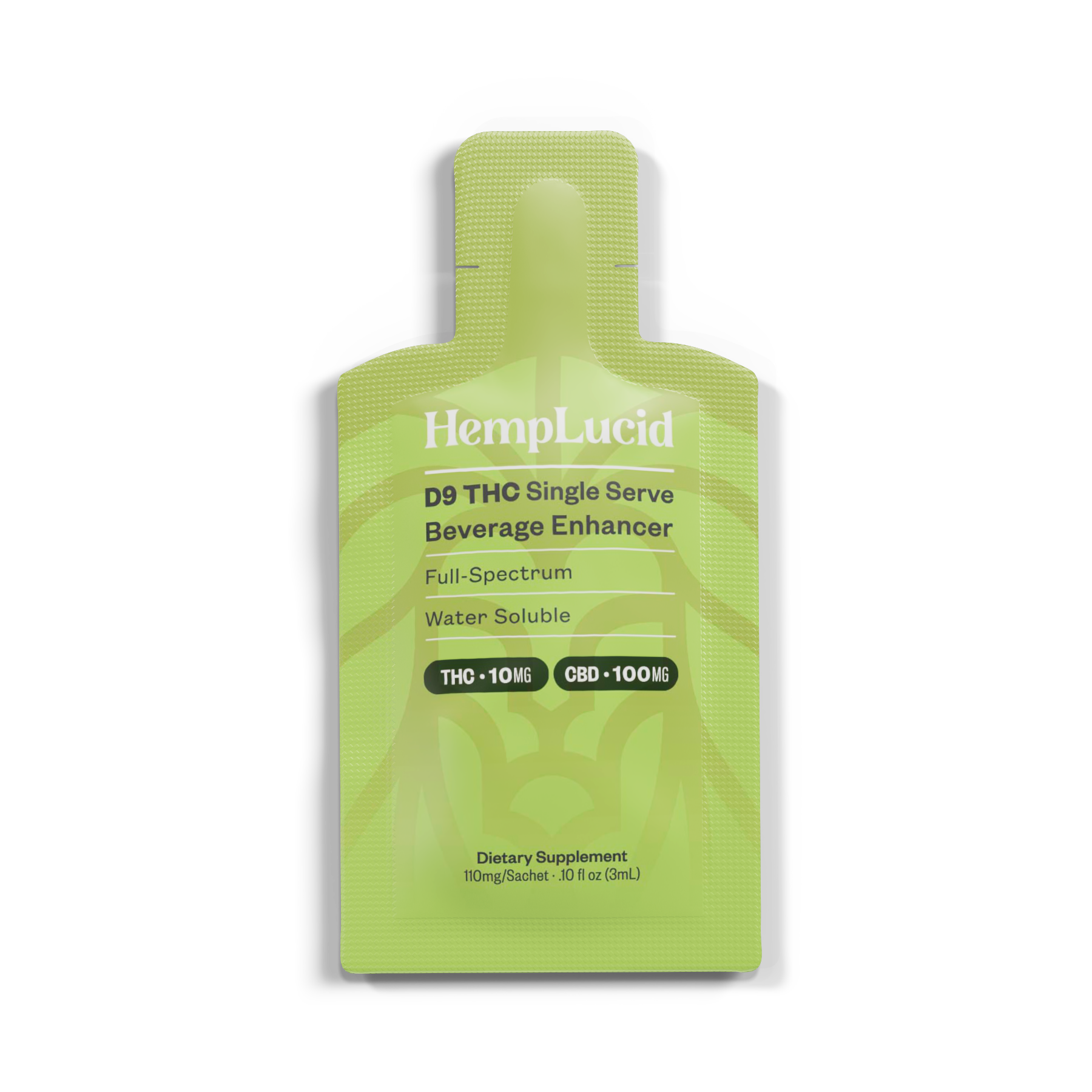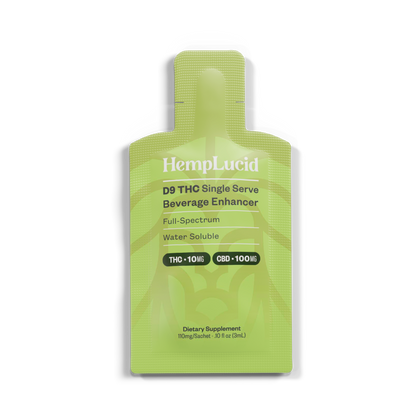Wellness Education
Browse Categories
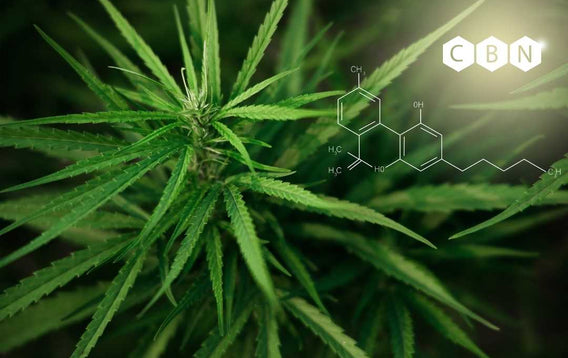
What Is CBN? The Sleep-Boosting Cannabinoid Exp...
Looking for a natural, plant-based sleep solution? HempLucid’s organic CBN products deliver restful nights without the grogginess.
Read More
Incorporating Mushroom and CBD Supplements into...
Today, more than ever before, our health and well-being are an important concern and something most people are aware of and want to improve. Current research suggests that modern people...
Read More
16 Mushroom Benefits for Women You Might Not Kn...
As a woman, it's important to take care of your health. Our diet and activity levels really contribute to both our physical and emotional health, but it's often hard to...
Read More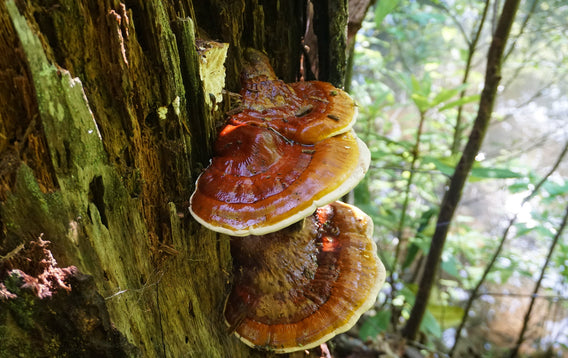
How Reishi Mushrooms Support Liver Health and A...
The Reishi mushroom is a popular choice for individuals, as many claim it provides multiple health benefits, including improved mood, a reduction in stress levels, while also being the best...
Read More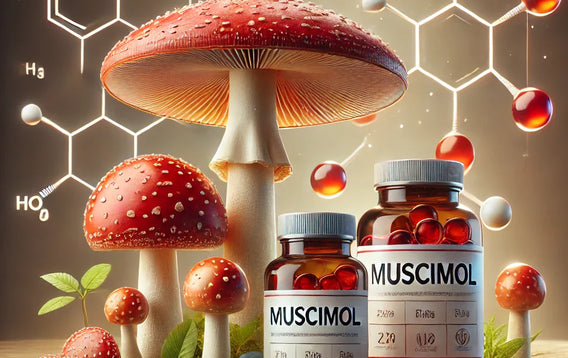
Investigating the Aphrodisiac Effects of Mushrooms
Medicinal mushrooms are known for their many unique health benefits, but are you aware that individuals are increasingly using them to improve their sex drive? We're about to answer all...
Read More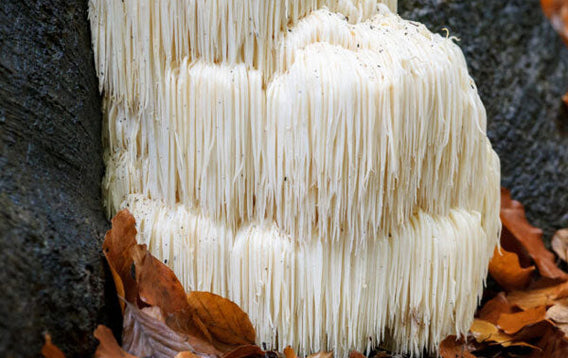
How Much Lion's Mane Should You Take?
Can too much Lion's Mane be harmful? If you have never taken any Lion's Mane, it is always a good idea to start with a lower dose. You can then...
Read MoreShop Most Popular
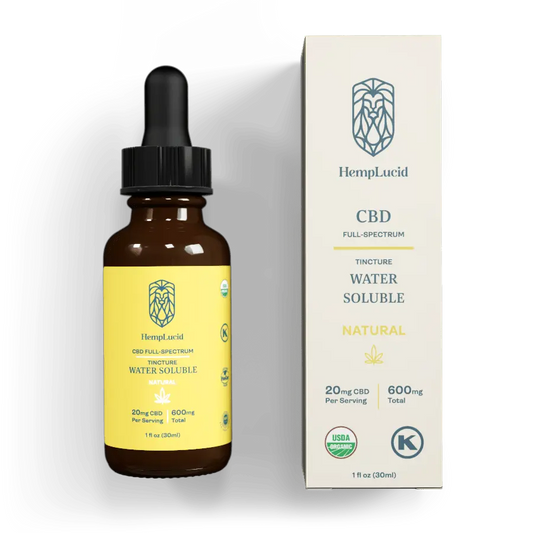
 WATER SOLUBLE
WATER SOLUBLE
Organic Full-Spectrum Water Soluble CBD - Natural Flavor
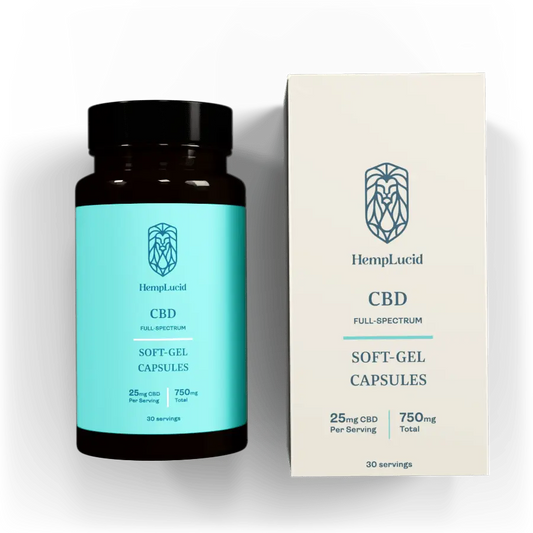
 CAPSULES
CAPSULES
Organic Full-Spectrum CBD - SoftGel Capsules
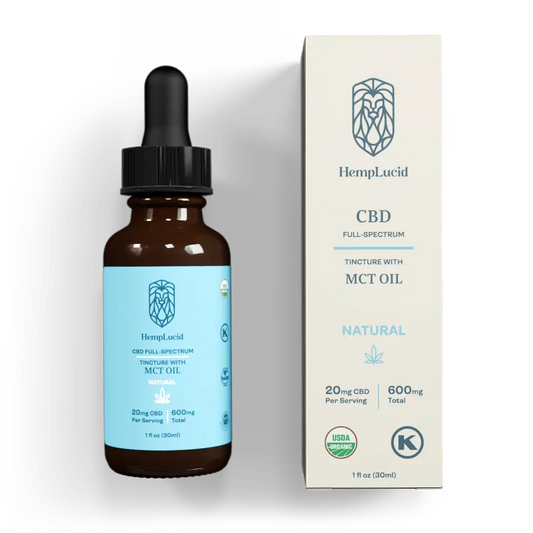
 CBD TINCTURE
CBD TINCTURE
Organic Full-Spectrum CBD in MCT Oil - Natural Flavor
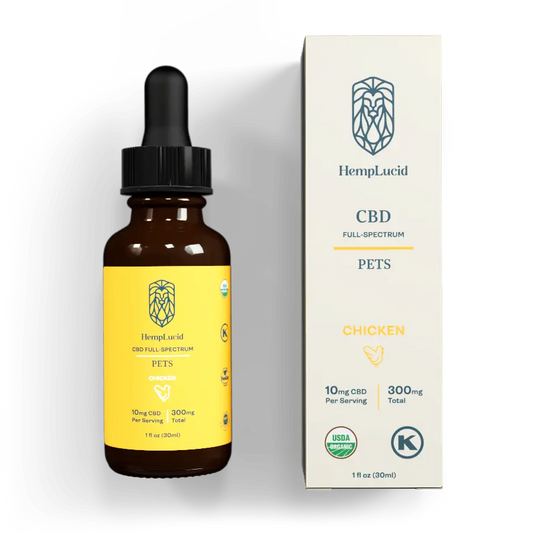
 PETS
PETS
Organic Full-Spectrum CBD for Dogs & Pets Tincture - Chicken Flavor
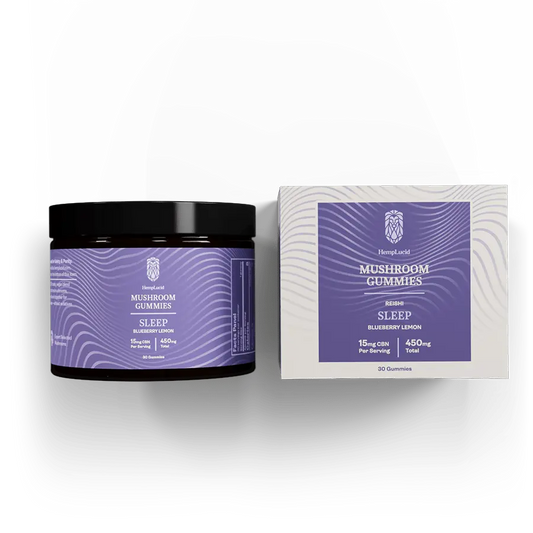
 BETTER SLEEP
BETTER SLEEP
Sleep Mushroom CBN Gummies - Blueberry Lemon
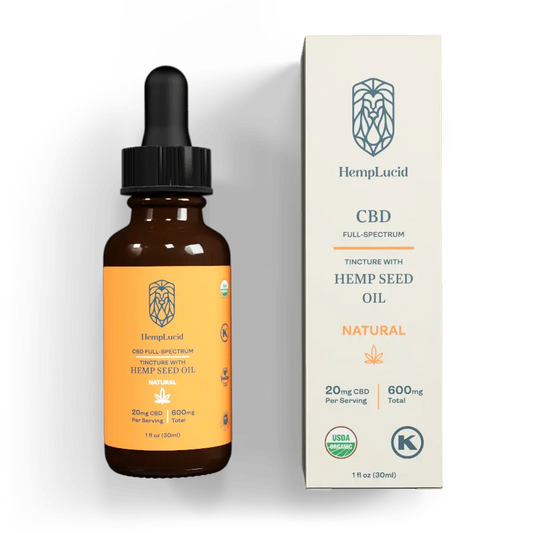
 CBD TINCTURE
CBD TINCTURE
Organic Full-Spectrum CBD in Hemp Seed Oil

 TOPICALS
TOPICALS
Organic Full-Spectrum CBDA CBD Body Cream
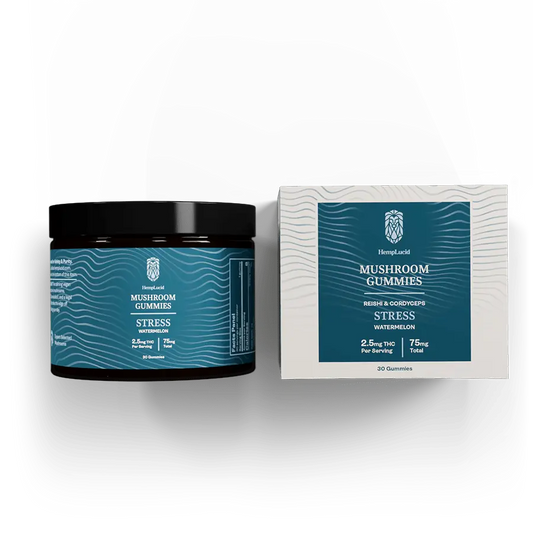
 STRESS RELIEF
STRESS RELIEF
Stress Mushroom THC Gummies - Watermelon
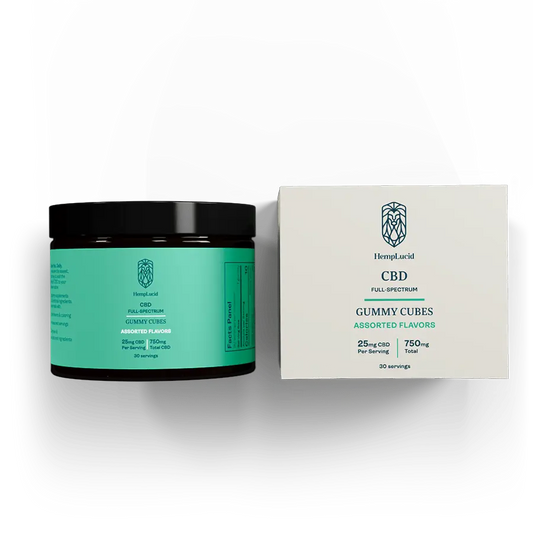
 EDIBLES
EDIBLES
Organic Full-Spectrum CBD - Gummy Cubes
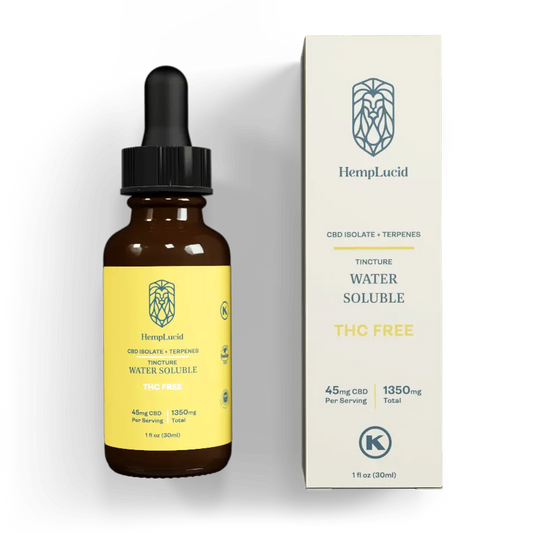
 WATER SOLUBLE
WATER SOLUBLE
THC-Free Water Soluble CBD Isolate + Terpenes
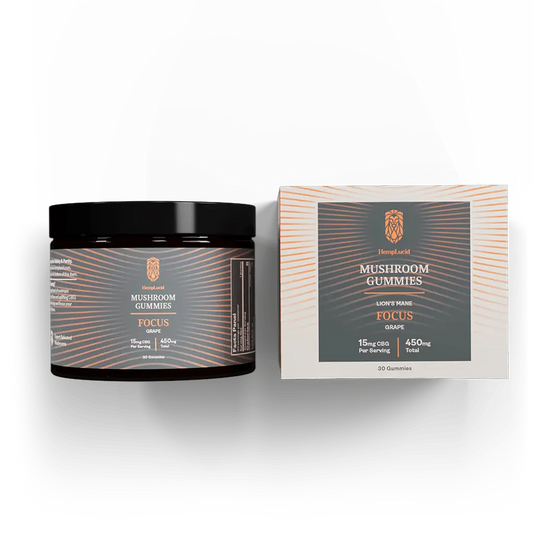
 BOOST FOCUS
BOOST FOCUS
Focus Mushroom CBG Gummies - Grape
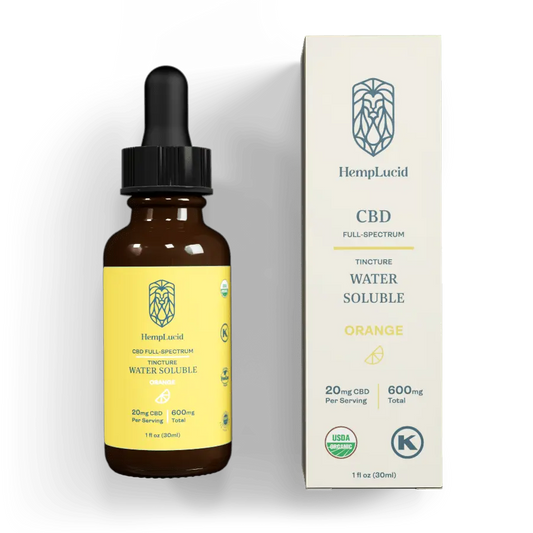
 WATER SOLUBLE
WATER SOLUBLE
Organic Full-Spectrum Water Soluble CBD - Orange Flavor
 EDIBLES
EDIBLES
Delta 8 THC Gummy Cubes - Strawberry Flavor
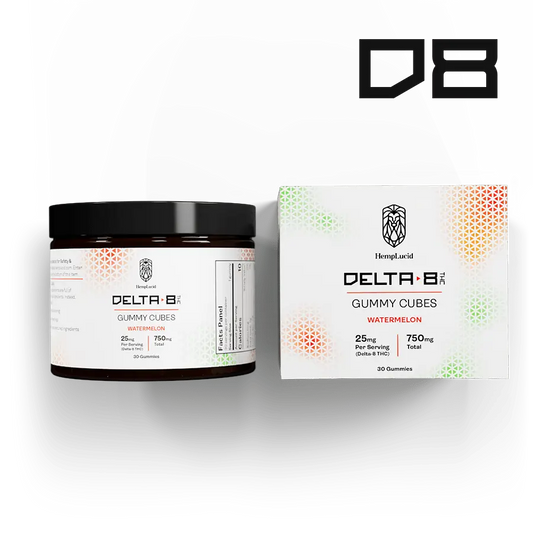
 EDIBLES
EDIBLES
Delta 8 THC Gummy Cubes - Watermelon Flavor
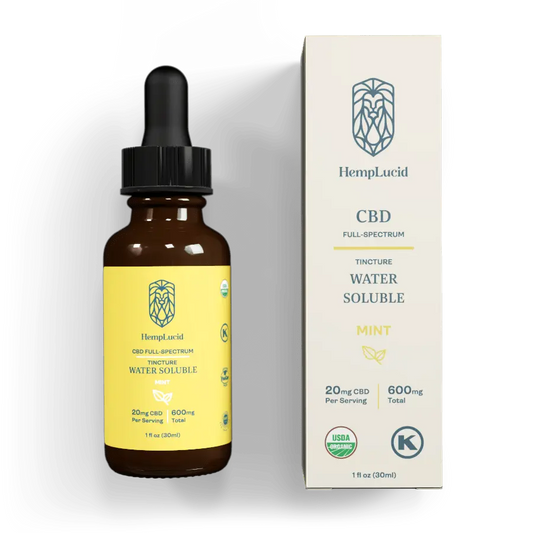
 WATER SOLUBLE
WATER SOLUBLE
Organic Full-Spectrum Water Soluble CBD - Mint Flavor
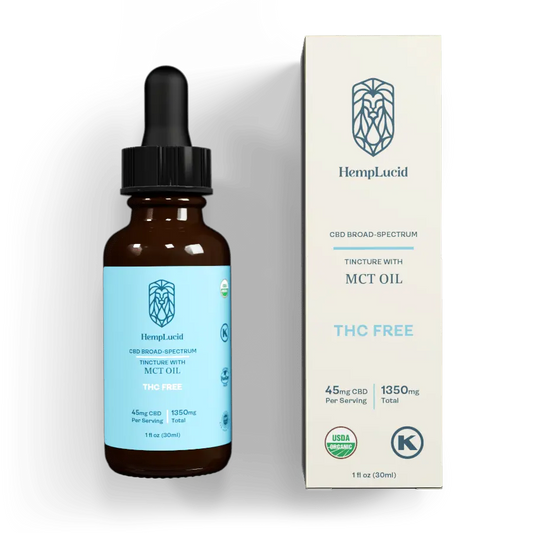
 CBD TINCTURE
CBD TINCTURE
Organic THC-Free Broad-Spectrum CBD in MCT Oil

 BETTER SLEEP
BETTER SLEEP
Organic Full-Spectrum Water Soluble CBN CBD - Sleep Lavender Mint Flavor
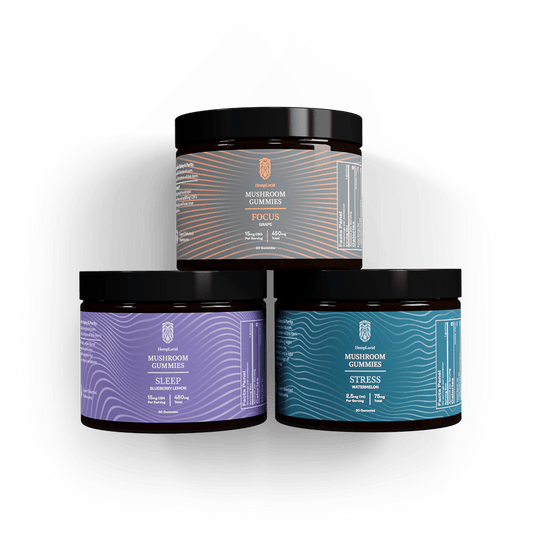
 EDIBLES
EDIBLES
Focus Sleep Stress - Herb & Mushroom CBN THC CBG CBD Gummies

 WATER SOLUBLE THC
WATER SOLUBLE THC
Delta 9 THC Beverage Enhancer - Natural Flavor
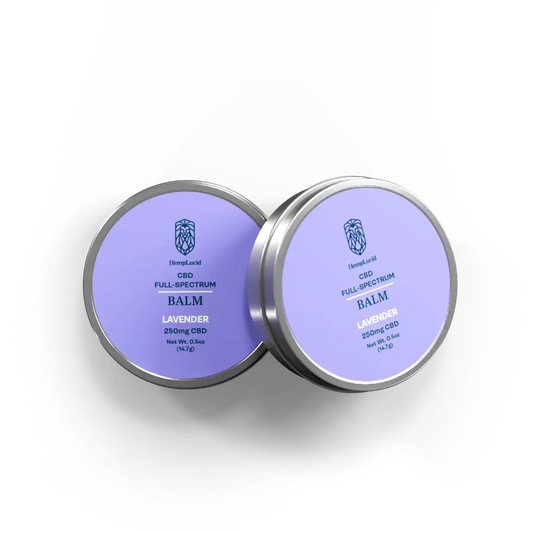
 TOPICALS
TOPICALS
Organic Full-Spectrum CBD Body Balm - Lavender
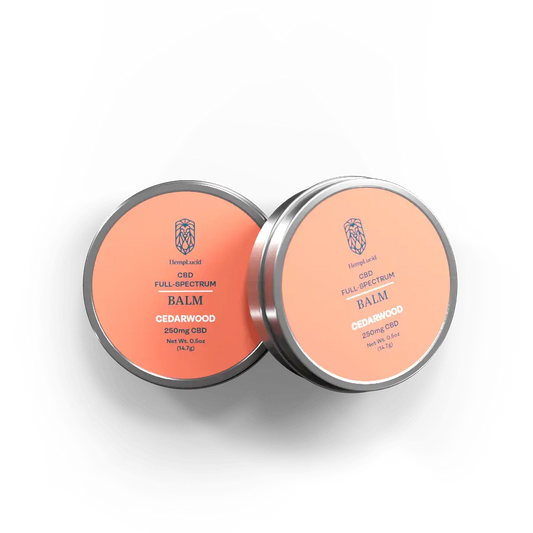
 TOPICALS
TOPICALS
Organic Full-Spectrum CBD Body Balm - Cedarwood
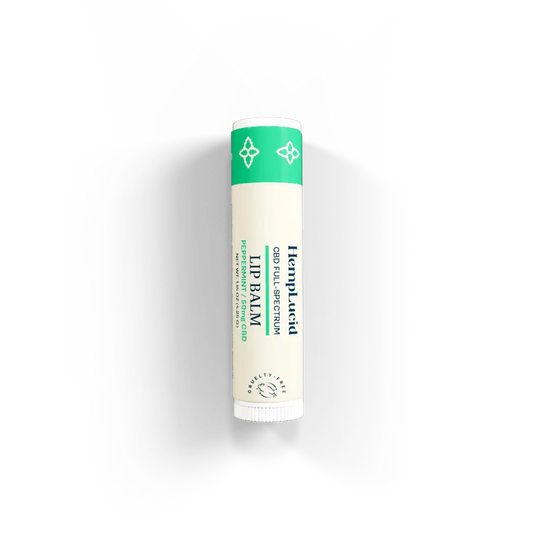
 TOPICALS
TOPICALS
Organic Full-Spectrum CBD Lip Balm - Peppermint
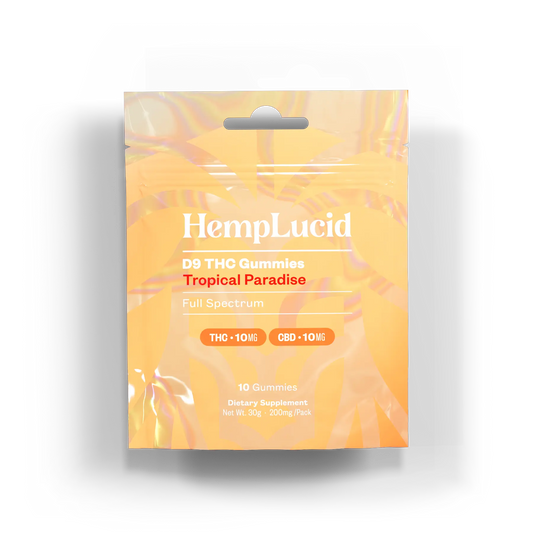
 EDIBLES
EDIBLES
Delta 9 THC 10mg + CBD 10mg Gummies 10 pack - Tropical Paradise
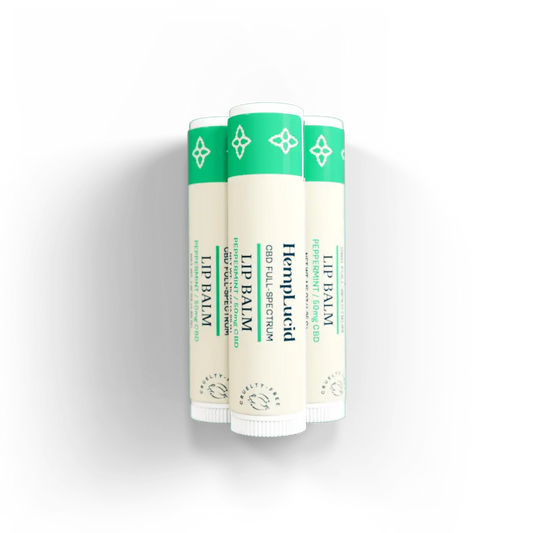
 TOPICALS
TOPICALS
Organic Full-Spectrum CBD Lip Balm - 3-Pack Peppermint
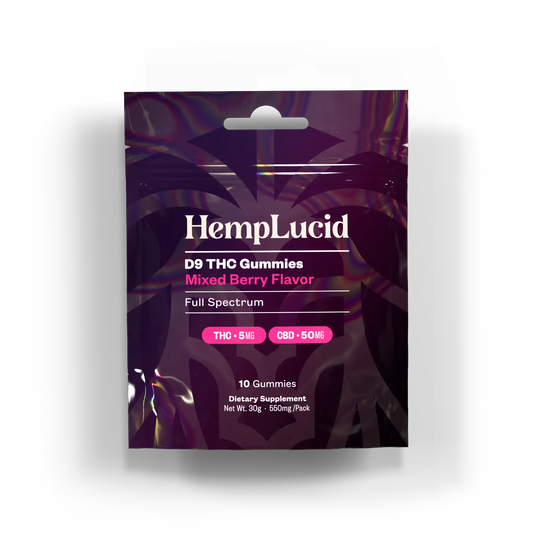
 EDIBLES
EDIBLES
Delta 9 THC 5mg + CBD 50mg Gummies 10 pack - Mixed Berry
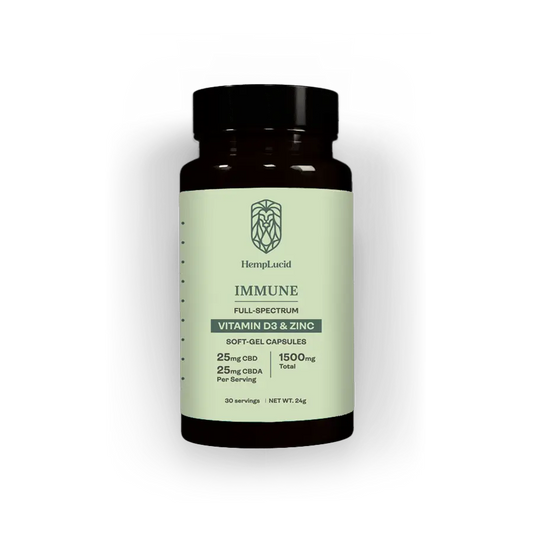
 IMMUNE SUPPORT
IMMUNE SUPPORT
Immune Boost - D3 and Zinc CBD/CBDA Softgel Capsules
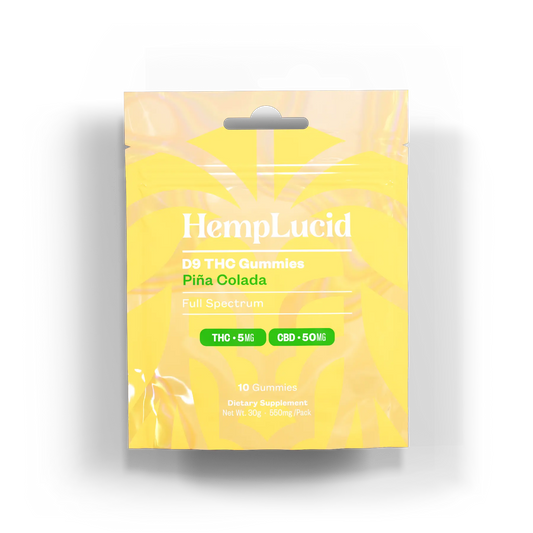
 EDIBLES
EDIBLES
Delta 9 THC 5mg + CBD 50mg Gummies 10 pack - Piña Colada
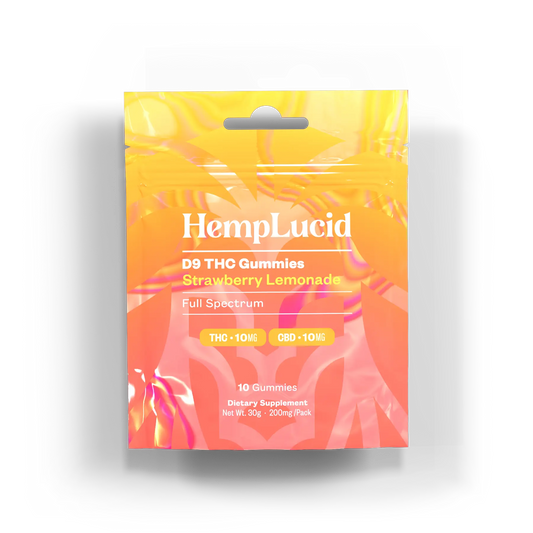
 EDIBLES
EDIBLES
Delta 9 THC 10mg + CBD 10mg Gummies 10 pack - Strawberry Lemonade
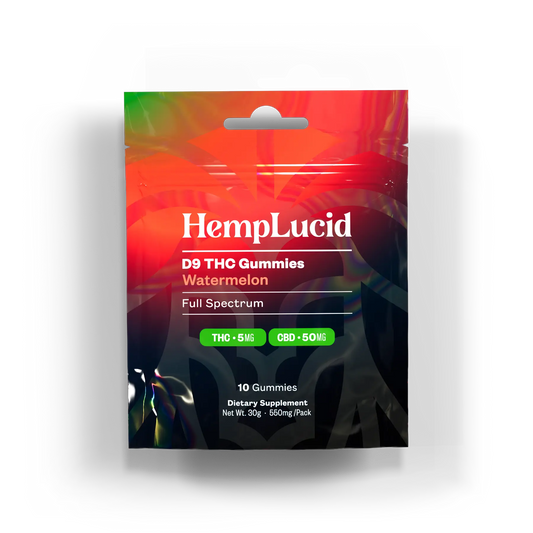
 EDIBLES
EDIBLES
Delta 9 THC 5mg + CBD 50mg Gummies 10 pack - Watermelon
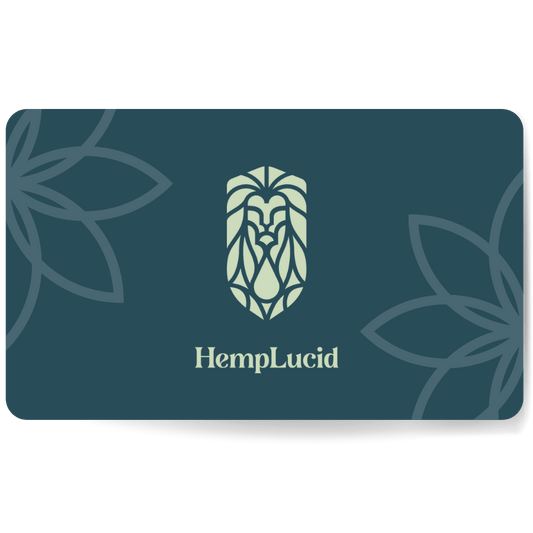
HempLucid Gift Cards
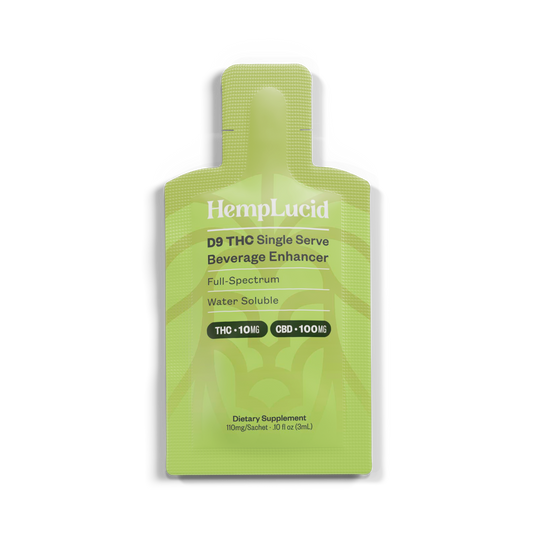
 WATER SOLUBLE THC
WATER SOLUBLE THC
Delta 9 THC 10mg Beverage Enhancer Full Spectrum Water Soluble Sachet - Natural
- Previous
- Next
